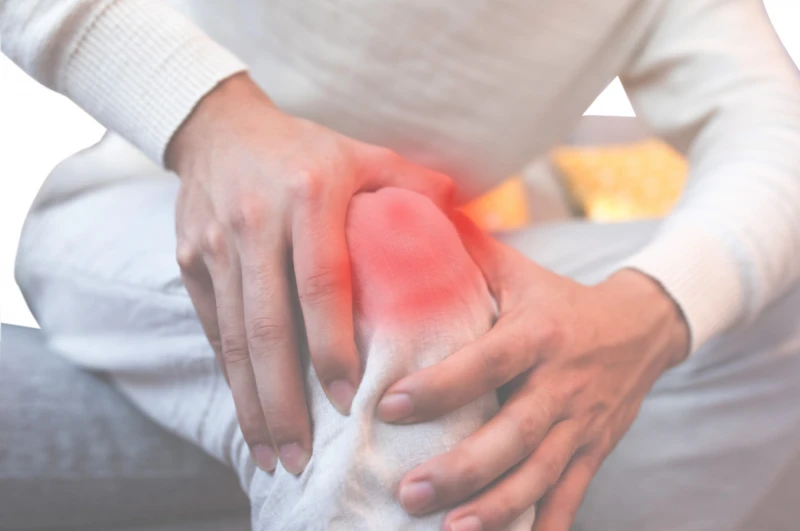- (+66) 02-753-4701
- Distribution Center (Voramit Drug Center Co., Ltd)
- Everyday 08.30 - 17.30

Office Syndrome
What is office syndrome? Do you fall into this group of symptoms?
Office Syndrome encompasses various muscle and fascial pain syndromes, including Myofascial Pain Syndrome, which involves chronic muscle pain and inflammation, as well as pain caused by tendonitis (Tendinitis), which involves inflammation or irritation of a tendon. These conditions can result from repetitive movements, poor posture, and prolonged periods of sitting, all common factors in office work environments. It's essential for individuals to be aware of these risks and to take steps to prevent and manage these conditions through ergonomic adjustments, regular breaks, and proper exercise.)

Premenstrual Syndrome
Premenstrual Syndrome (PMS) refers to a collection of symptoms that occur in the days or weeks leading up to menstruation in women.
PMS is estimated to affect nearly 80% of women and is commonly observed in the age range of 20 to 40 years. Its’ symptoms can vary widely among individuals and may include physical, emotional, and psychological changes such as bloating, breast tenderness, mood swings, irritability, fatigue, and food cravings. It's important for individuals experiencing PMS to understand their symptoms, seek support if needed, and explore strategies for managing their symptoms effectively.

Migraine and dietary supplements
Can dietary supplements really prevent migraines? So which dietary supplement can prevent this? Today we have the answer
Occasional migraine pain, characterized by intense throbbing or pulsating headaches typically felt on one side of the head, can persist for an extended duration. It's essential to note that certain foods can trigger migraine headaches in susceptible individuals. Additionally, caution should be exercised when using nonsteroidal anti-inflammatory drugs (NSAIDs) or medications specifically prescribed for migraine treatment, as improper usage may lead to medication-overuse headaches or exacerbate symptoms. It's advisable for individuals experiencing migraines to consult with a healthcare professional for proper diagnosis and personalized treatment recommendations.

Diarrhea, loose diarrhea, what medicine can I take?
We believe that many people like to ask for antibiotics when they have diarrhea. So is it necessary? Today we have the answer....)
Diarrhea is characterized by unusually frequent bowel movements, typically occurring more than three times a day. These bowel movements are often loose, watery, or contain mucus. In some cases, individuals may experience liquid bowel movements only once in a day. It's important to note that diarrhea can be caused by various factors, including infections, dietary issues, medication side effects, or underlying medical conditions. Prompt medical attention may be necessary if diarrhea persists or is accompanied by other concerning symptoms such as fever, severe abdominal pain, or dehydration.

Osteoarthritis
Nowadays, it is believed that many You probably have this problem as well. Today we have advice on caring for the treatment of osteoarthritis.
What is osteoarthritis? Osteoarthritis usually occurs in middle age. reaching old age Both males and females can be born. And there is a tendency to find more patients with osteoarthritis as a result of entering 50% of the elderly society.
Osteoarthritis is the most common form of arthritis, affecting millions of people worldwide. It occurs when the protective cartilage that cushions the ends of the bones wears down over time. Although osteoarthritis can damage any joint, the disorder most commonly affects joints in your hands, knees, hips and spine. Its’ symptoms can usually be managed, although the damage to joints can't be reversed. Staying active, maintaining a healthy weight and receiving certain treatments might slow progression of the disease and help improve pain and joint function.
Contact us:
We're here to help and ready to assist you promptly. For further inquiries or assistance, please don't hesitate to contact us through the following channels:
Term & Condition
Site Map:
Working Hours
Monday
Tuesday
Wednesday
Thursday
Friday
Saturday
Sunday
8.30 - 17.30
8.30 - 17.30
8.30 - 17.30
8.30 - 17.30
8.30 - 17.30
8.30 - 17.30
Holiday